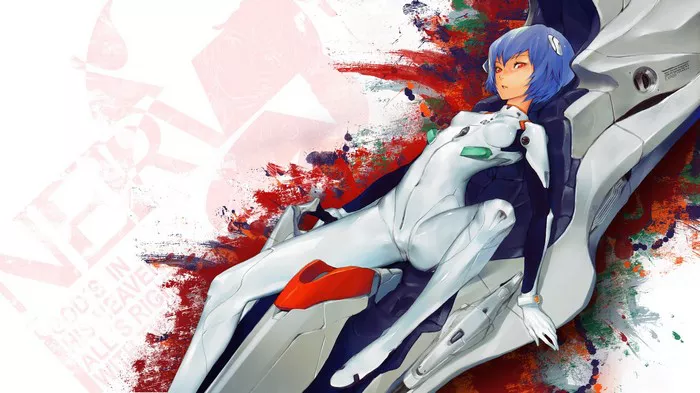Neon Genesis Evangelion stands as a seminal work in the realm of anime, renowned for its complex characters, philosophical themes, and intricate narrative. At the heart of this groundbreaking series lies a cast of deeply troubled individuals, each grappling with their own inner demons and existential angst. Among them, one character stands out for the profound depths of their despair—a figure whose struggles with depression resonate with viewers on a visceral level. In this article, we delve into the psyche of the most depressed character in Neon Genesis Evangelion, examining the factors that contribute to their emotional turmoil and the impact it has on the series as a whole.
The Landscape of Despair: An Overview of Neon Genesis Evangelion
Before we can delve into the intricacies of the most depressed character in Neon Genesis Evangelion, it’s essential to understand the context in which their struggles unfold. Directed by Hideaki Anno and first aired in 1995, Neon Genesis Evangelion is set in a dystopian future where humanity faces existential threats from enigmatic beings known as Angels. The story follows Shinji Ikari, a reluctant pilot of giant bio-mechanical robots called Evangelions, as he grapples with his own identity, relationships, and the looming specter of apocalyptic conflict.
The Human Instrumentality Project: A Catalyst for Despair
At the heart of Neon Genesis Evangelion lies the enigmatic Human Instrumentality Project—a clandestine undertaking with profound implications for the fate of humanity. As the series unfolds, it becomes clear that the Human Instrumentality Project is not merely a plot device but a thematic linchpin that drives the emotional and psychological arcs of its characters. For the most depressed character in the series, the prospect of Human Instrumentality serves as a catalyst for their descent into despair, amplifying their feelings of isolation, inadequacy, and existential dread.
Unraveling the Psyche of the Most Depressed Character
While all the characters in Neon Genesis Evangelion grapple with their own inner demons, one stands out for the profound depths of their despair—Rei Ayanami. As a genetically engineered clone and pilot of Evangelion Unit-00, Rei embodies a sense of existential detachment and emotional numbness that sets her apart from the rest of the cast. Throughout the series, Rei’s interactions with Shinji and other characters offer glimpses into the shattered fragments of her psyche, revealing a complex tapestry of longing, self-loathing, and profound emptiness.
The Loneliness of Existence: Rei Ayanami’s Struggle with Identity
At the core of Rei Ayanami’s depression lies a profound sense of existential loneliness—a feeling of being adrift in a world that she struggles to comprehend or connect with. As a clone created for the purpose of piloting Evangelion Unit-00, Rei grapples with questions of identity, agency, and purpose, all of which contribute to her overwhelming sense of despair. Throughout the series, Rei’s interactions with Shinji and other characters offer fleeting moments of connection and vulnerability, but ultimately serve to underscore the profound alienation that defines her existence.
The Weight of Expectations: Rei Ayanami’s Burden of Duty
In addition to her struggles with identity and loneliness, Rei Ayanami also bears the weight of immense expectations placed upon her by others. As a pilot of Evangelion Unit-00, Rei is thrust into the midst of a conflict that she neither fully understands nor has any control over. Throughout the series, Rei’s interactions with her commanding officer, Gendo Ikari, and other authority figures highlight the extent to which she is treated as a mere tool to be wielded in service of their own agendas, further exacerbating her feelings of worthlessness and despair.
The Illusion of Control: Rei Ayanami’s Search for Meaning
In her quest to find meaning and purpose amidst the chaos of her existence, Rei Ayanami grapples with the illusion of control—a futile attempt to impose order upon a world that defies comprehension. Throughout the series, Rei’s interactions with Shinji and other characters offer glimpses into her inner turmoil as she struggles to reconcile her own desires with the expectations placed upon her by others. Ultimately, Rei’s journey serves as a poignant exploration of the human condition, highlighting the inherent contradictions and complexities of the human experience.
Conclusion: The Legacy of Rei Ayanami’s Despair
In conclusion, Rei Ayanami stands as the most depressed character in Neon Genesis Evangelion, her struggles with identity, loneliness, and existential despair serving as a poignant reflection of the human condition. As the series unfolds, Rei’s journey serves as a powerful reminder of the fragility of the human psyche and the profound impact of trauma, loss, and alienation. Ultimately, Rei’s legacy serves as a testament to the enduring power of empathy, connection, and the search for meaning in a world fraught with uncertainty and despair.


